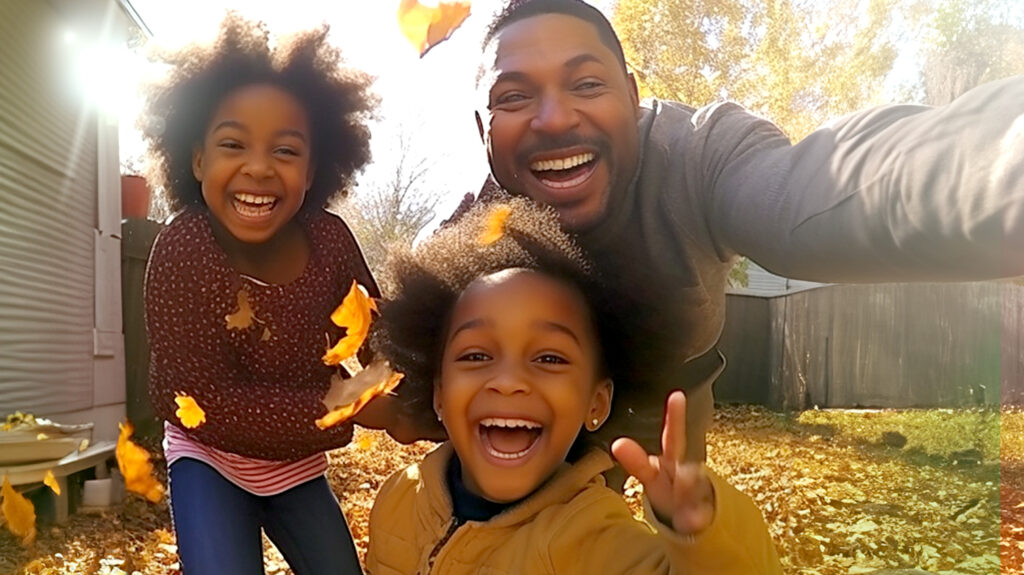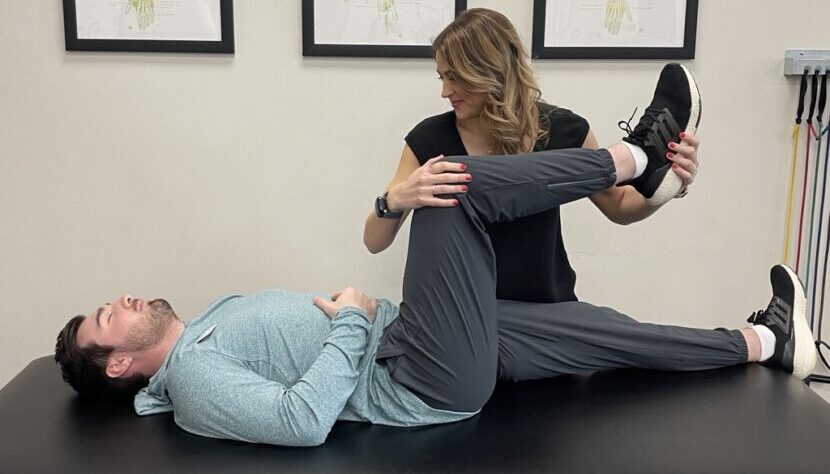The following article highlights TexPTS’ very own Arlyn Thobaben! Arlyn is part of the Evidence In Motion Hosted Residency Program and works with Andrew Bennet at the Selma clinic.
Arlyn Thobaben is a professional musician turned physical therapist working in the San Antonio area. We have a number of mutual acquaintances from her time at Community Musicworks in Rhode Island, and as a body nerd, I truly appreciate the amount of work and dedication needed to transition from performing artist to healthcare professional.
Kayleigh: What is your background in music and performance?

Image by Marc Arevalo.
Arlyn: I have been involved in music as long as I can remember. My two older sisters played the violin (and later, my younger sister) so it was inevitable that I would too! In high school, I took as many music classes as possible! I was in Orchestra, Chamber Orchestra, Show Choir and Cantorum, and even played the lead role in my high school musical. I began as a Music Education major at Baldwin Wallace University Conservatory of Music, but soon shifted my focus to Violin Performance with Dr. Julian Ross. I have always wanted to be a teacher, and my goal was to be the BEST teacher I could be!
I completed my graduate studies at the Longy School of Music, where I studied violin and viola with Laura Bossert. Laura is one of the most incredible, life-changing teachers I have ever worked with. I believe that she planted the seed for my curiosity and fascination of the human body and how people learn to learn about the human body. She helped me transform my left hand technique to function with less pain and energy in a totally unorthodox, but truly effective way! Upon graduating from Longy, I started my musical career as a Fellow with Community MusicWorks. My work with CMW combined my interests in teaching, performance, and community involvement and was the perfect environment for me to cultivate my ultimate professional interests (see below).
K: How did you first get interested in physical therapy? Did that interest come from being injured?
A: My first experience with physical therapy came through my own injury that hindered my ability to function as a musician. I woke up one morning and couldn’t move my neck. My left arm was tingling! I couldn’t teach or play. Luckily, one of my colleagues at CMW suggested that I call her physical therapist’s office. In Rhode Island, where clients have direct access to physical therapy (without the need for physician referral), I was scheduled and seen that same day. My physical therapists worked with me for a few months, until I was back to 100%. I learned so much about myself, and was touched by what I saw around me in that outpatient clinic. I witnessed people struggling with pain and rehabilitating from major surgeries, working through to reach their personal goals and get back to their lives with the help of a mentor who knew so much about the human body and how it moves. Soon after, I volunteered at the University of Rhode Island school of physical therapy and had my first exposure to a Parkinson’s exercise group. I watched a professor/therapist work with a woman in the later stages of Multiple Sclerosis, where the focus of problem solving around her functional activities transcended her grim diagnosis. After witnessing that particular interaction, I knew for sure that I wanted to use my talent and the strengths I developed as a musician to become a different kind of teacher—a physical therapist.
K: How has your understanding of the body changed in your studies? How has your own relationship with your body evolved?
A: I immediately became more reverent and awestruck by the human body through my work in cadaver lab (first semester of PT school, when the going gets tough and you have to learn how to use a scalpel and bone saw with ease). In working to help improve real problems with live bodies (clients), it helps to remind myself of that respect that I developed that first semester. I remember how everything works together and try to maintain a positive outlook, no matter how difficult the case. In other words, I think, “how is this spine, as is, trying to help my client get through their day? How can I create a window of opportunity to improve how it works?” vs. “my patient has severe lumbar spondylosis and it is causing a lot of pain. X-rays say it’s bone on bone. My exam says so too. What can I do to help fix this mess of a spine?”
In looking at my relationship with my own body, I am hardly ever deeply bothered by an injury or pain. I try to approach my physical impairments with the same sense of curiosity and respect that I use with my clients. My training has taught me to think about the problem, reason through what is most likely to help, make a plan and then take action.
K: What has been the biggest epiphany with your studies and work so far?
A: The one idea that has changed my outlook on practicing physical therapy is this: the more complicated the client presents, the simpler it is to discover the appropriate treatment for that client. This provides hope for both clients and their physical therapists! I won’t go into great detail here, but just know this: as a client struggling with complex, severe or elusive injury or pain, you are more likely to find the right treatment with the help of a skilled therapist.
K: What’s one thing you wish musicians knew about health/wellness/the body?
A: I believe that musicians who play an instrument should know that first and foremost, your own body is still your primary instrument! Take care of it as you would your violin (or insert your instrument here). Would you leave your violin in the car when it’s 0 degrees outside? Forget to rosin your bow for 3 months because you don’t have time? Taking care of your body with intention is just as important as practicing with intention.
K: How do you plan on combining music and PT in your life?
A: I hope to one day play a large role in facilitating access to physical therapy for student and professional musicians of all ages.
K: How can people connect with you and your work?
A: I am currently practicing as an Orthopedic Resident with Texas Physical Therapy Specialists in Selma. (San Antonio, TX area) Andrew Bennett is my clinical mentor. Dr. Bennett is an expert clinician and teacher, and I am so excited to develop my practice and prepare for the Orthopedic Specialty with him! We are available to clients through physician referral OR for free screenings / consultations (no referral required.) You can also e-mail me directly at [email protected]!
This article was originally posted on The Musicians’ Health Collective website. Click here to view the original article.



